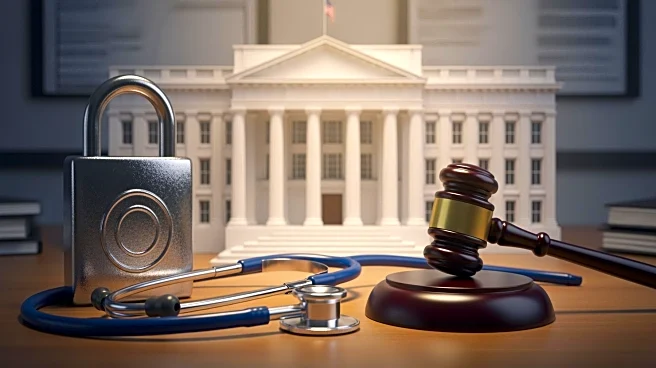What's Happening?
The Senate convened for a weekend session to address the ongoing government shutdown, but progress remains elusive. Senate Majority Leader John Thune's hopes for a quick resolution were dashed as President Trump reiterated his opposition to extending
Affordable Care Act tax credits. The shutdown, now in its 39th day, is causing widespread disruptions, including unpaid federal workers and delayed SNAP benefits. Senators are divided over healthcare funding, with Republicans opposing the extension of subsidies and Democrats advocating for their continuation.
Why It's Important?
The government shutdown is the longest in U.S. history, affecting millions of Americans and critical services. The debate over healthcare funding is central to the impasse, with potential consequences for insurance premiums and access to care. The political stalemate reflects broader divisions over healthcare policy and fiscal priorities. The outcome of these negotiations will have significant implications for public health and economic stability, as well as the political fortunes of those involved.
What's Next?
Moderate Democrats are negotiating with Republicans to find a compromise that could end the shutdown. Proposals include extending government funding temporarily while promising a future vote on healthcare subsidies. However, President Trump's stance and the lack of guaranteed outcomes complicate these efforts. The Senate may soon face a test vote on new legislation, forcing Democrats to choose between continuing the shutdown or accepting a compromise with uncertain results.















